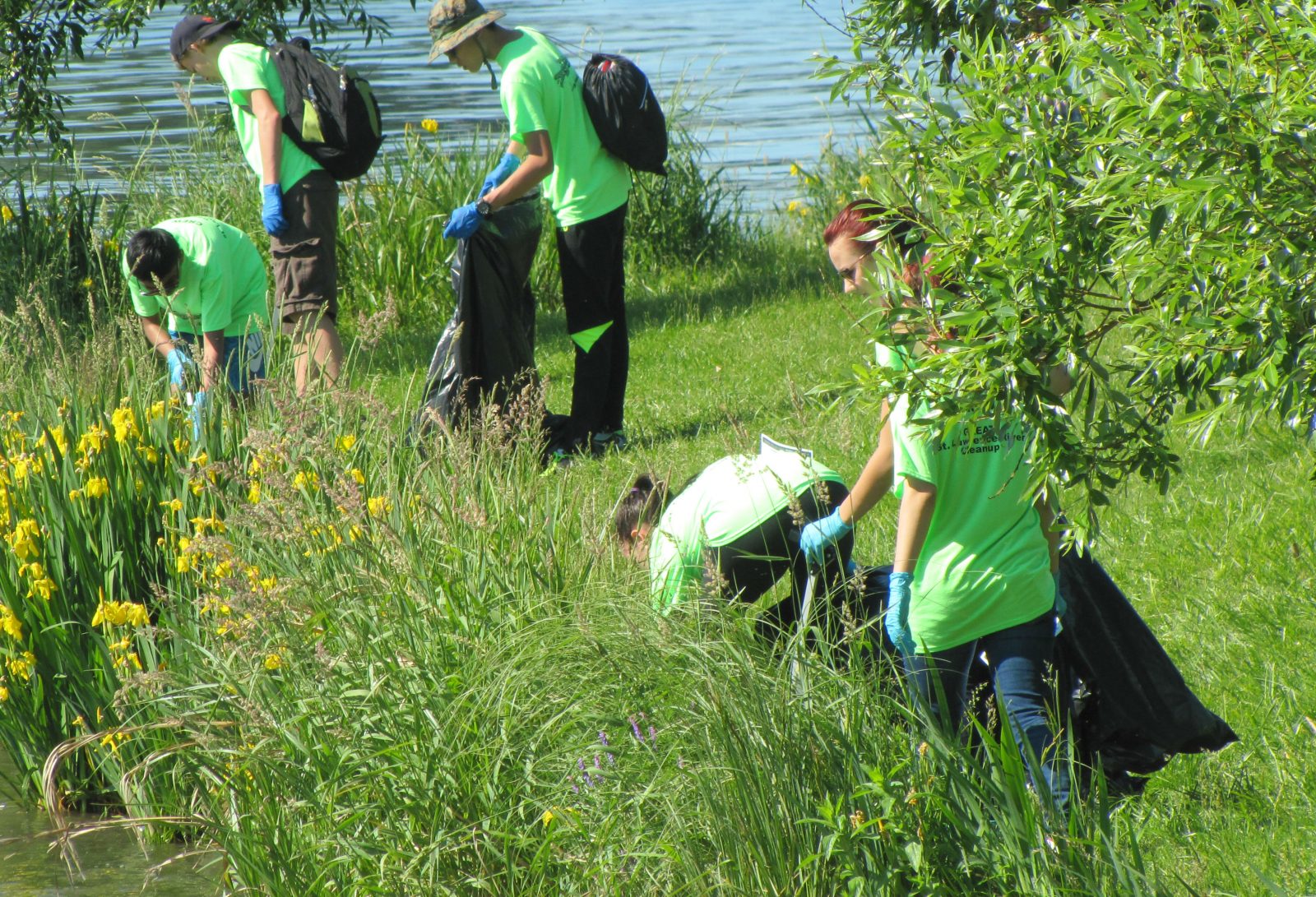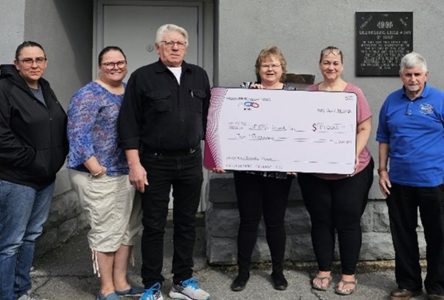CORNWALL, Ontario – As a part of their promise to take back the St. Lawrence River “one piece of garbage at a time,” the Upper St. Lawrence River Network kicked off the first day of the Great St. Lawrence River Cleanup on Saturday, June 18 at Gray’s Creek.
The kickoff event on Saturday is the first of four dates which will take place over the summer to clean-up the St. Lawrence River.
At the biggest clean up, planned for August 13, Karen Cooper of the Raisin Region Conservation Authority, hopes to have a crane on hand to get the really big pieces of garbage out of the river.
“People see everything in the river and ask why someone doesn’t do something,” Cooper said. “We know there are parts of the old bridge in there, but also washing machines, car parts and toilets from people who don’t want to pay dumping fees. What they don’t understand though is that this is our river. We get drinking water from this river.”
Efforts to clean up the river go back thirty years when the rising levels of toxins in the water were declared a growing concern, and that is when the Remedial Action Plan to take back the river was organized.
The Remedial Action plan is a part of the Upper St. Lawrence River Protection Network which supports the efforts of conservation groups along the river including in Cornwall, SD&G, and Akwesasne.
Scott Peters from the Mohawk Council of Akwesasne’s environmental department was on hand to lead the volunteers at the cleanup in a traditional Mohawk prayer.
Peters said that garbage in the St. Lawrence is something he has had to deal with for awhile.
“It’s something I always see when I go out on the river,” he said. “I see this stuff and I do my best to stop and pick it up.”
Peter’s said that 20 years ago, Akwesasne was sending divers out to pull some of this garbage out of the river.
“I’m glad to see that now the whole region is getting involved in tackling this issue,” said Peters.
Around 50 volunteers spread out along the coast line to pick up trash that had washed ashore, while 15 divers went out on boats to recover what they could from the water.
Those who are interested in getting involved in future clean-ups are encouraged to get in touch with the Raisin Region Conservation Authority.



